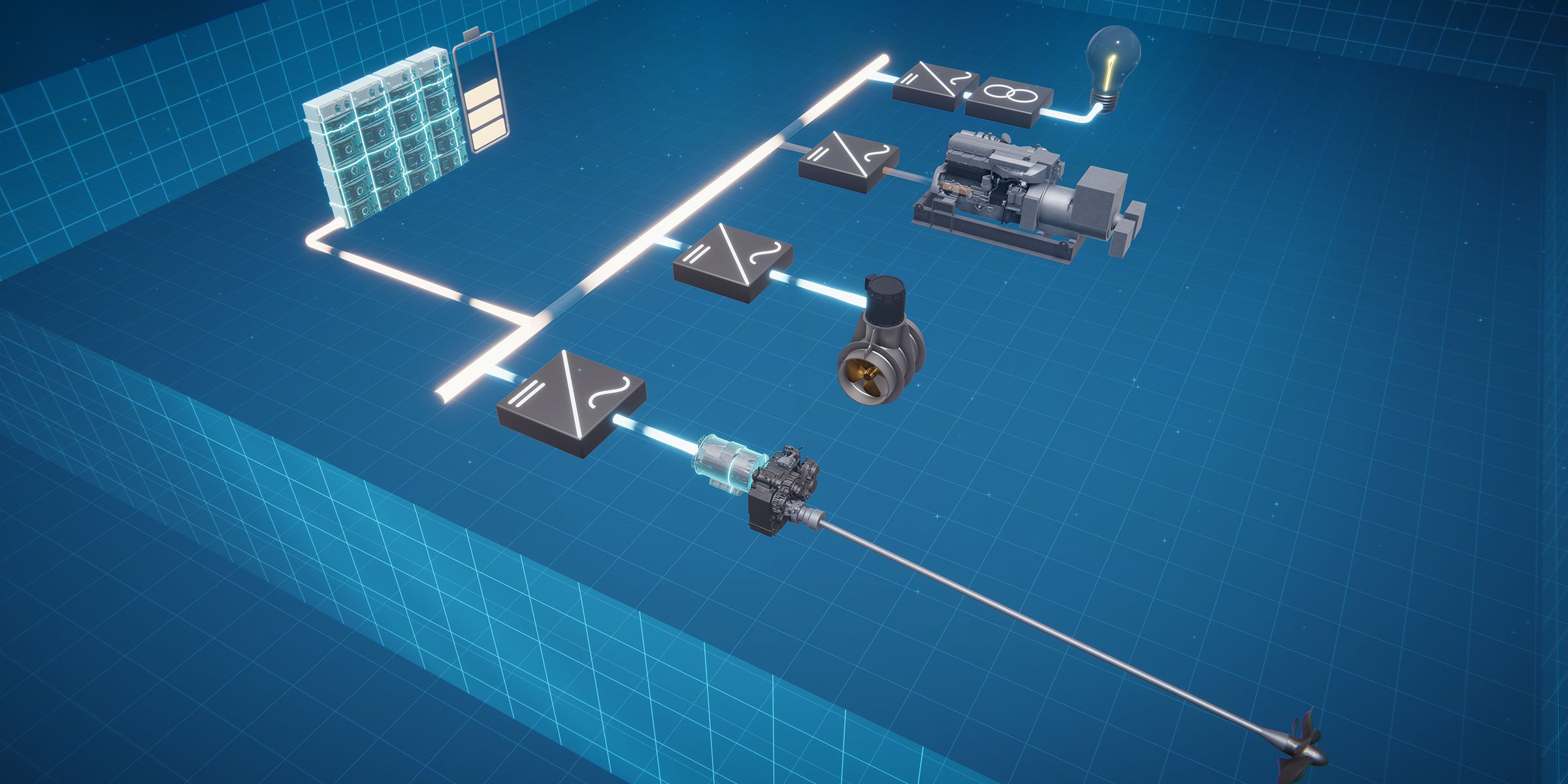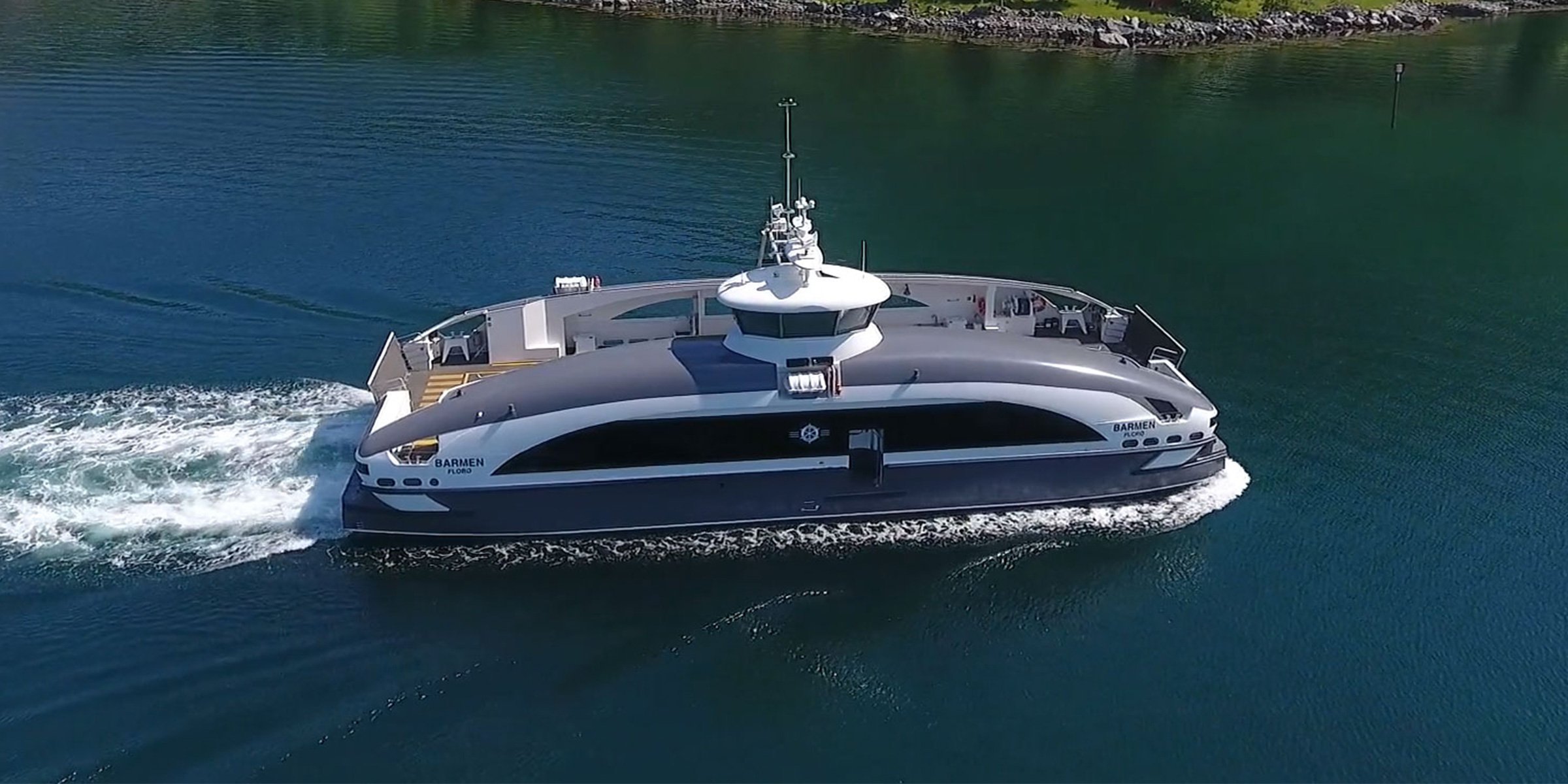Maritime traffic accounts for a significant portion of the emissions from the transport sector.
It is possible to reduce the impact on the air quality and reduce the emission of greenhouse gasses in the European waterways and cities, with electrical propulsion solutions for passenger ferries and work boats.
‘We are delighted to see a development with more and more of our marine vessels being switching to electrical propulsion,’ says Eirik Nesse - Director Marine Propulsion, BOS Power AS.
The company based in Bergen, specialising in maritime power systems, has invested heavily in the development of hybrid and electrical propulsion solutions for ferries and fast passenger vessels in the recent years. Now another segment within passenger traffic is able to exploit the solutions offered by BOS Power.
‘All our major cities in Europe have an environmental strategy for reduction of local emissions from the transport sector. While reduction of emission from cruise ships and large vessels required need considerable investment in shore power, we have a solution ready now for the smaller passenger vessels and work boats operation in our waterways,’ says Nesse, and explains:
‘The common denominator for these vessels is that they typically operate on short routes at relatively low speeds. That means they don't need huge battery packs for the electrical propulsion systems, and the required charging power is manageable without large investment in the shore power electric infrastructure’
Eirik Nesse, Director Marine Propulsion at BOS Power
Do you have off-the-shelf solutions for this type of vessel?
‘We do indeed. The technology is tested and proven in several vessels in commercial operation. What's more, our solutions can be scaled to suit different vessel types.’Massive demand
Small passenger vessels operates in a number of towns and cities along the coast and the inland waterways in the Nordic region.
That seems to be a big market for the solutions you offer?
‘It is indeed. We are a partner and adviser for such vessel operators. Our team, which consists of project managers, engineers and technicians, customises solutions for each individual vessel. We also build lifelong relationships with our customers, and provide follow-up and service along the way, based on our extensive presence of service technicians across the Nordic."
Nesse believes there will be considerable growth in green solutions in the maritime sector.
‘Demand for hybrid and electrical solutions for the ferries and passenger vessels market is growing year on year. There are still technical challenges to overcome in some cases, yet it's very satisfying to be an active partner in the green transformation in our industry. The maritime sector traditionally relies on fossil fuel based propulsion systems, but there is now a change to hybrid propulsion systems and zero emission solutions. Battery-powered solutions in which the energy for propulsion is stored in batteries is in particular demand, to effectively reduce the emission of greenhouse gases.

Battery electric propulsion system – example system configuration
Zero emission ferries in composite materials
BOS Power has taken part in the development of the world's first fully-electric car ferry build in composite GRP material, approved for transport of hazardous goods.
‘We supplied the electrical propulsion system for the Barmen ferry. The project was a joint venture with the innovative environment around Easy Form and the Måløy Shipyard in Sogn and Fjordane, Norway.’

BOS Power has also repeated its success with its partners in Måløy. The fully electric passenger boat “Ole Bull” transports passengers to the museum of the composer Ole Bull, on Lysøen, Os, in Norway. It provided a new experience for the passengers with a very quiet passage and no emissions of greenhouse gases.
‘We supplied a tailored solutions “from the bridge to the propeller” for this project, including battery packs, charging system, electric motors, switchboards and the energy control system for the boat,’ concludes Nesse.
BOS Power possesses considerable competence within the development and supply of hybrid and zero emission systems, with its own development department and lab, dedicated to the development of zero emission power systems. The company is providing complete turnkey systems, including power and control systems, for integrated solutions in vessels and other installations, fully tested and certified.
In addition to developing hybrid and zero emission solutions, BOS Power is the Nordic distributor for the well-known mtu engine brand from Rolls-Royce Power Systems.
